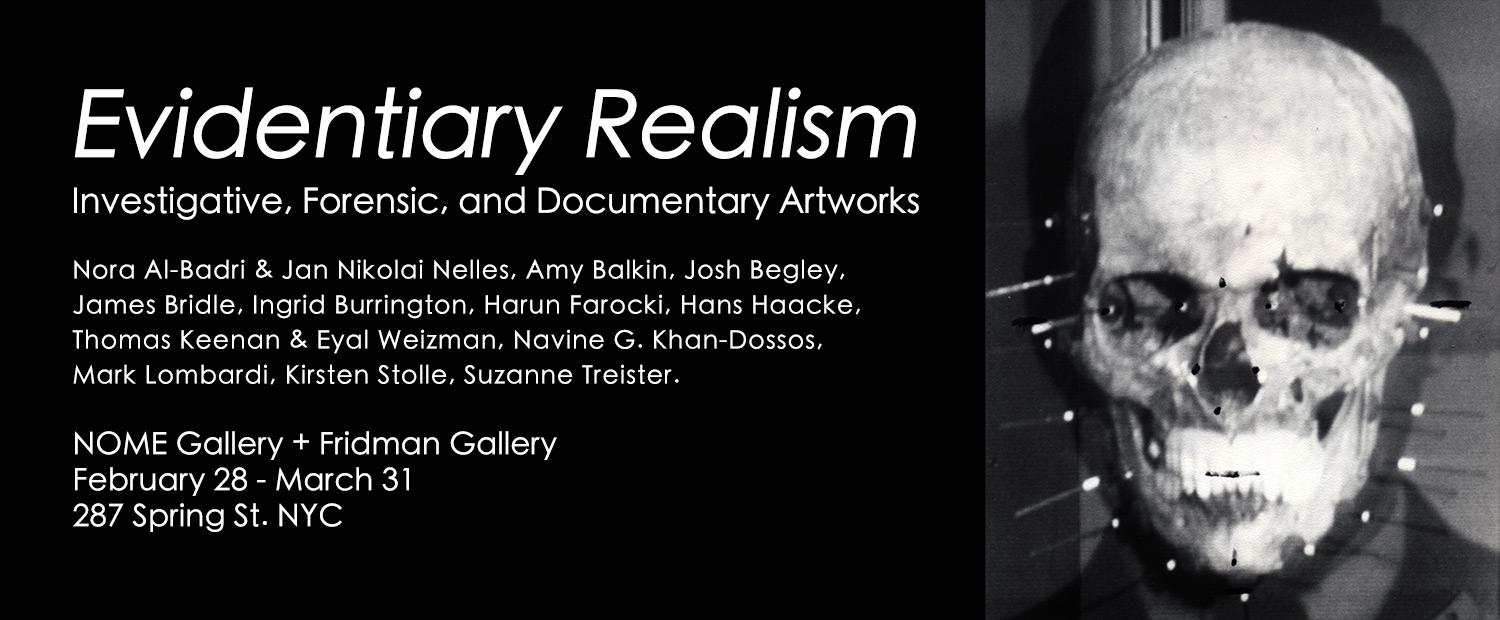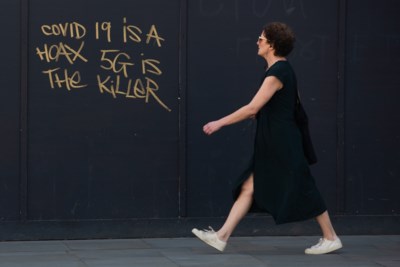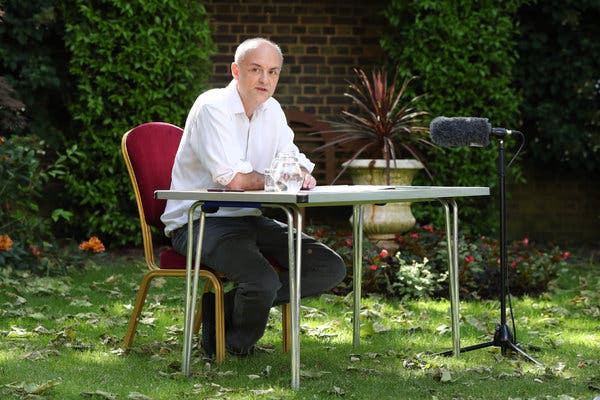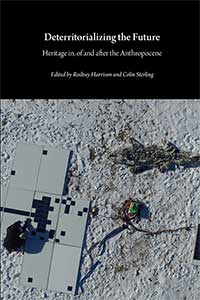So far in Postdigital Politics in a Time of Pandemics, I have described some of the ways my collaborators and I are trying to operate differently to the individualistic, liberal humanist ways of working and acting traditionally associated with being a theorist in the fields of art and culture, especially of the ‘star’ variety. In part IV, 'How to Be An Anti-Bourgeois Theorist', I then proceeded to sketch a few further dimensions to this mode of practicing commons-oriented, anti-liberal, anti-neoliberal, anti-bourgeois theory (ABT) that we’re experimenting with. Drawing on projects such as after.video, the Mandela27 DIY Exhibition, and
Memory of the World, I showed how ABT is, among other things, post-literary, low key, performative and pre-figurative.
I now want to continue by making two points that I realise some may find counter-intuitive. For all my emphasis on enactment, pre-figuration and the performance of theory, I would not like the commons-oriented initiatives my collaborators and I are involved with to be positioned in terms of concrete, material practices as distinct from, say, immaterial theory. In articulations like this it’s often forgotten that the practices that produce theory are always already concrete, while the theory that privileges the concrete and the material is often very weak.
Although I can understand the temptation to do so, we should also take care when it comes to understanding such enterprises as ‘aesthetic practices’, no matter how much they may occupy the intersection between the commons and art, and for all art is another field with the potential to create such a space where new realities can tested and constructed. To be sure, we need to interrogate the manner in which art and culture in the twentieth century became, as intellectual historian François Cusset puts it, ‘on the one hand, the most thriving industry of the new capitalism, if not its laboratory of ideas; and, on the other, a collection of devices and situations that were mostly disconnected from the social and political field, a kind of refuge cut off from the exterior world’. Research commissioned by the Art Fund in 2018, for instance, shows that one of the main reasons those in Britain under thirty years of age give for visiting an art gallery or museum is ‘specifically to “de-stress”’. But this should only encourage us to ask: even if our commons-supporting projects can be perceived as expanding conceptions of aesthetics, so the two discourses (i.e. the commons and aesthetics) come into close contact and can potentially create something new, might there still be something conservative about interpreting the likes of after.video and Memory of the World primarily in artistic terms? Isn’t there a danger in doing so of going along too much with the belief that the right is interested in politics and power, while what the left cares about is art and (self-)expression?
Nor is this an issue that can be resolved by ‘challenging established notions of contemporary aesthetic practice’ through the adoption of the kind of ‘truth and evidence’ approach that has been proposed as a means for artists to resist post-truth politics. Media artist and activist David Garcia offers as an example the ‘Evidentiary Realism’ of Lawrence Abu Hansen, Trevor Paglen, Lev Manovich and !Mediengruppe Bitnik. The ‘gold standard’ of Evidentiary Realism as far as Garcia is concerned, however, are the investigations into cases of state violence and human rights violations conducted by the Forensic Architecture art and knowledge research centre at Goldsmiths, University of London. Yet when it comes to engaging with postdigital political issues such a pro-evidence, pro-data stance is not without difficulties of its own.

In response to a question as to whether ‘identifying their outputs as art might... “take the edge off the truth he is trying to show”’, Garcia quotes Eyal Weizman, leader of Forensic Architecture, countering as follows:
Think about it. When the most important piece of evidence coming from battle fields world wide are video graphic. You need video makers to make sense of it… And to understand how one piece of video might relate to another. Indeed aesthetic sensibilities. The sensibilities of an architect an artist or a film maker are very useful in figuring out what has taken place.
Weizman is surely missing the point here, though. The problem is not whether Forensic Architecture needs to include aesthetic sensibilities in their truth-seeking investigations – and let’s not forget their public art installations and exhibitions they put together using charts, diagrams, infographics, models, audio-visual installations, digital imaging and so on, which are arguably what they are best known for nowadays. The problem is that in positioning what they do in terms of art and aesthetics, Forensic Architecture get all the advantages that accrue from that, in terms of being nominated for the 2018 Turner Prize and so on. However, they get the disadvantages too. Not least among the latter is that Forensic Architecture’s projects are indeed vulnerable to being considered just art.
Nowhere is this danger more apparent than in the main example Garcia gives of ‘the role Evidentiary Realism can play in countering politically motivated obfuscation’: Forensic Architecture’s report to the parliamentary commission investigating the role of a state intelligence agent in the 2006 murder of Halit Yozgat in an internet café in Kassel, Germany. The day before they were due to submit this report Germany’s Christian Democratic Party (CDU) published a counter-report. The aim was to ‘de-legitimize’ Forensic Architecture’s findings on the grounds it was the ‘work of artists’ and, accordingly, ‘should not be taken seriously as evidence’. And, to be sure, the risk of de-legitimation is very real for aesthetic practices and sensibilities, no matter how much they may show truth to power, nor how reflexive their relationship may be to the complex systems we inhabit. This is one of the reasons the projects of my collaborators and I constitute a plurality of forms of intervention that are responding to specific issues across a number of different sites: forms of intervention associated not just with aesthetics and with the practices of artists, or even theorists, but also (where appropriate) with those working in the fields of activism, education, business, politics, technology or the media.
A further concern with Evidentiary Realism’s pro-data approach relates to the way in which the liberal establishment has found the politics of figures such as Trump and Johnson difficult to deal with on the basis of the agreed facts. Now there is a perfectly good explanation for this difficulty: it’s because these right-wing populists are not actually operating on the level of consistent, reasoned argument. Consider Trump’s description of first the climate crisis and then the coronavirus as a ‘hoax’ – hardly an evidence-based response to the science and data on his part. (Bolsonaro likewise accused large parts of the media of ‘tricking’ the people over the dangers of the coronavirus, which he likened to a ‘little flu’.) Nevertheless, it’s a situation a lot of commentators still find hard to accept. Instead, they continue to insist that the anti-liberal right can be contested on a truth-seeking level. Witness the spectacle of Alan Rusbridger, ex-editor-in-chief of The Guardian, arguing that the way to counter Johnson’s evasions and lies is with good, responsible, ‘independent and decently crafted’ journalism, in which the ‘lines between truth and falsehood; facts and propaganda; openness and stealth; accountability and impunity; clarity and confusion; news and opinion’ are retained rather than blurred.

Similarly, many scientists and journalists resort to evidenced-based information and facts to counter rumours: that 5G networks lower people’s immune system to Covid-19, for example, a false claim that led to numerous mobile phone masts being set on fire in the U.K. and elsewhere. (A further academic variation on the theme has come from the social sciences. It concerns the idea that ’public faith in expert knowledge can only be regained not through reasserting the authority of facts but by rediscovering ways of knowing-in-common’ in order to make the case for what Noortje Marres – taking notions of both ‘democracy’ and the ‘public’ as her datum points in doing so – refers to as ‘knowledge democracy’.) Yet as we’ve seen with anti-vaxxers and climate-breakdown deniers, such an approach has repeatedly been found to be futile, counterproductive even, in that it often only succeeds in eroding social trust further. The trouble is, the roots of the current cultural crisis in democracy lie much earlier than the rise to power of the likes of Johnson and Trump: they stretch back, through the failure of the political class to hold those responsible for the financial crisis of 2008 to account, at least as far as the refusal to heed the 2003 protests against the invasion of Iraq. Both events left large numbers of people feeling they could no longer rely on professional politicians, the liberal establishment (to which Rusbridger is a fully paid up member), or the state to arrive at the correct decisions based on the evidence (as opposed to, say, dodgy dossiers about weapons of mass destruction being ‘ready within 45 minutes of the order to use them’).
It is this collapse of confidence in the processes of representative democracy and its valuing of truth and justice that the nativist right have capitalised on. They have thus been quite prepared to undermine any attempts to question their authority that privilege facts over opinion. This includes those that have come from the direction of good journalism – or indeed science, the media, academia and the judiciary. One way populists and their supporters have done so is by dismissing such challenges as hailing from the very partisan, city-dwelling liberal elite they denounce as being the ‘enemy of the people’; a people for whom they of course are speaking. Another is to undermine the veracity of the challenge by producing ‘alternative facts’. As late as February 26 Trump was claiming the total number of Covid-19 cases in the U.S. would be ‘close to zero’. ‘On February 28, Trump said that coronavirus will “disappear” like a “miracle”.’ He then predicted that the forthcoming spring weather would kill it off and prevent its spread. Together with the disbanding in 2018 of the National Security Council pandemic unit established by Obama – and indeed a deeply rooted antipathy toward both government intervention and systems of public health, welfare and infrastructure that is quite characteristic of the radical right – it’s an attitude that to led to an astonishing sluggishness to mobilise against Covid-19 on the part of the Trump administration. (Some have gone so far as to call it inept, incompetent and downright dangerous.) ‘I think the 3.4%’, the World Health Organization’s calculated death rate for those with Covid-19, ‘is really a false number’, Trump told Fox News in March. ‘Now, this is just my hunch’, he said, clearly privileging his own guesswork over the research of the medical and public health professionals. ‘I think that that number is very high… personally, I would say the number is way under 1%’. While it’s effectiveness with regard to the coronavirus outbreak is certainly questionable – witness the reaction to Trump’s April 23 suggestion that injecting disinfectant could kill it, or his May 18 revelation that he was taking the antimalarial drug hydroxychloroquine as a preventive – the general strategy behind producing alternative facts is not so much to offer a counter-truth or even disinformation. It’s rather to spread confusion in order to convey the overall message that no truth can be believed. In the words of Hannah Arendt: ‘If everybody always lies to you, the consequence is not that you believe the lies, but rather that nobody believes anything any longer’. Or as journalist Kai Strittmatter put it recently with regard to authoritarian leaders in both China and the West: ‘If you’re a liar and a cheat, there’s no way for you to win in a world that is repelled by these things, a world that differentiates between truth and lies.’ What you need to do is ‘make everyone else a liar and a cheat, too. Then you will at least be their liar.’
 Only little people are held responsible for the consequences of their actions. Dominic Cummings, chief adviser to Boris Johnson, gives a press conference in the Downing Street rose garden, 25 May, 2020
Only little people are held responsible for the consequences of their actions. Dominic Cummings, chief adviser to Boris Johnson, gives a press conference in the Downing Street rose garden, 25 May, 2020
Dissembling like this and getting away with it has the further advantage of making such authoritarian figures look strong. They lie, cheat and break the law because they know they can. The rules don’t apply to them. Only little people are held responsible for the consequences of their actions. This explains how Trump is able to continue in his role as president, despite having made what the Washington Post, at the time of this writing has calculated to be 19,127 false or misleading claims in his first 1,226 days in office. It also explains why the attempt to counter Johnson’s constant fabrications during the 2019 election campaign with endless fact checking did little to prevent his ultimate victory. Indeed, it can be argued that the reason many people vote for such populist politicians is not because they actually believe their lies, or because they are necessarily right-wing nativists. It’s because they know doing so is the best way to get back at a cosmopolitan liberal establishment that has ignored them for so long.
Of course, it’s not an either/or (more of a Deleuze-and-Guattarian ‘“and… and… and”’). Anti-fake digital literacy initiatives, such as that set up in Finland to teach people ‘how to counter false information designed to sow division’ by recognising and adopting a critical attitude to fake news, are incredibly valuable. (A study of thirty-five countries has ranked the population of Finland as the most resistant to anti-knowledge politics). This is especially the case in a time and space of contagion when rumours are rife (e.g. that Sars-CoV-2 was engineered in a lab by Bill Gates so he could profit from a vaccine, or by the Chinese government as a bioweapon). Also important are the projects and investigations of Forensic Architecture and others associated with the Evidentiary Realism movement in art. I’m thinking in particular of the former’s reconstruction of the events of August 1, 2014, when Israel launched 2,000 bombs, rockets and shells against the Palestinian city of Rafah.
 Multiple images and reconstructed bomb clouds are arranged within a 3D model of Rafah, Gaza. (Forensic Architecture)
Multiple images and reconstructed bomb clouds are arranged within a 3D model of Rafah, Gaza. (Forensic Architecture)
Forensic Architecture’s investigation contributed to a subsequent change in policy on the part of the Israeli government and military: namely, the withdrawal of the ‘Hannibal Directive’, whereby the Israeli army was authorized to kill any of its soldiers taken prisoner ‘with maximum available firepower’, rather than risk them being used as hostages. Still, the above concerns go some way toward articulating why, in the present postdigital conjuncture, many of my collaborators and I have taken the decision not to focus on resisting the hyper-emotionalism of post-truth politics by opposing it with empirically-based evidence presented aesthetically. When it comes to our anti-bourgeois theory-performances, we are more interested in tapping into some of the left’s own affective-emotional themes and tropes – encapsulated by words such as ‘commons’, ‘community’, and ‘collective’ – in order to help create specific institutional and infrastructural projects that are capable of acting as a political force.
This involvement on our part with actuating some of those ‘left’ affective forces that motivate people to become part of a group and form the basis of collective forms of identification, is also why I wouldn’t want any of what I’ve said to be taken as somehow shifting the focus from an emphasis on community to an emphasis on the provision of shared knowledge objects and resources. The majority of the resources I’ve pointed to are created and maintained by communities working collectively. In fact, I’d argue these communities are among the most import ‘resources’ we produce. One of the motivations behind our production of free, radical open access or ‘pirate’ resources and infrastructures is to encourage other initiatives and movements around the world by showing what can be achieved – how things might look if the transformed habits of being and doing I’m talking about were accepted. Another is to make it possible for chains of equivalence to be established between our projects and a diversity of other struggles locally, nationally and internationally. In addition to those I drew attention to earlier (Alexandria Ocasio-Cortez, platform cooperativism, municipal socialism etc.), these struggles include those for a four-day working week, Green New Deal, Unconditional Basic Income and Flat-Pack Democracy. There are also those featured in our Pirate Care project, the last of our initiatives I’m going to mention in 'Postdigital Politics in a Time of Pandemics'.
We use the term ‘pirate care’ to refer to two processes that are particularly prevalent today. First, to the way in which basic requirements for care of a kind that were once regarded as essential to society – such as public libraries, which in the U.S. are now not allowed to buy digital books – have been driven towards illegality thanks to the commercialisation of social services. Second, we use pirate care to refer to those ‘technologically-enabled care networks’ that have sprung up ‘in opposition to this drive toward illegality’ around a range of issues, from housing and healthcare provision to education and income support. Some of these networks deliberately run the risk of being considered illegal.
 Sea-Watch is a non-profit organization that conducts civil search and rescue operations in the Central Med
Sea-Watch is a non-profit organization that conducts civil search and rescue operations in the Central Med
To confine myself to those that took part in our 2019 Pirate Care conference, I can mention in this context: SeaWatch, which tries to save as many people as possible from drowning in the Mediterranean in defiance of European border policy which criminalizes both migrants and rescuers; Planka.nu, a group of organizations in Sweden that pays the fines of any of its members caught ‘fare-dodging’ as a means of advocating for free public transport for all; and the Docs Not Cops campaign group of healthcare workers in the U.K., who refuse to enforce immigration checks and charges on patients. Other such ‘pirate’ networks have decided to operate in the ‘narrow grey zones’ of ambiguity ‘left open between different technologies, institutions and laws’ in order to expound care as a collective political practice:
For instance, in Greece, where the bureaucratic measures imposed by the Troika decimated public services, a growing number of grassroots clinics set up by the Solidarity Movement have responded by providing medical attention to those without a private insurance. In Italy, groups of parents without recourse to public childcare are organizing their own pirate kindergartens (Soprasotto), reviving a feminist tradition first experimented with in the 1970s. In Spain, the feminist collective GynePunk developed a biolab toolkit for emergency gynecological care, to allow all those excluded from the reproductive medical services – such as trans or queer women, drug users and sex workers – to perform basic checks on their own bodily fluids.
Part of the idea behind the pirate care project is to offer these practices ‘some degree of protection by means of visibility’.
 Tuesday, September 8, 2020 at 10:10AM
Tuesday, September 8, 2020 at 10:10AM  En Sin Criterios, Steven Shaviro nos propone explorar una fantasía filosófica: imaginar un mundo en el que Alfred North Whitehead toma el lugar de Martin Heidegger. ¿Qué habría pasado si Whitehead, en vez de Heidegger, hubiese fijado la agenda del pensamiento posmoderno? Mientras que Heidegger pregunta: “¿Por qué hay algo y no más bien nada?”, Whitehead pregunta: “¿Cómo es que siempre hay algo nuevo?” Shaviro argumenta que, en un mundo donde prácticamente todo –desde la música popular al ADN– está siendo sampleado y recombinado, la pregunta de Whitehead es sin duda la más urgente. Sin Criterios es un experimento que trata de repensar la teoría posmoderna, especialmente la teoría estética, desde una perspectiva que nos conduce a Whitehead en lugar de Heidegger. Al trabajar con las ideas de Whitehead y de Deleuze, Shaviro también recupera a Kant, argumentando que ciertos aspectos del pensamiento kantiano preparan el terreno para el “constructivismo” filosófico adoptado por Whitehead y Deleuze.
En Sin Criterios, Steven Shaviro nos propone explorar una fantasía filosófica: imaginar un mundo en el que Alfred North Whitehead toma el lugar de Martin Heidegger. ¿Qué habría pasado si Whitehead, en vez de Heidegger, hubiese fijado la agenda del pensamiento posmoderno? Mientras que Heidegger pregunta: “¿Por qué hay algo y no más bien nada?”, Whitehead pregunta: “¿Cómo es que siempre hay algo nuevo?” Shaviro argumenta que, en un mundo donde prácticamente todo –desde la música popular al ADN– está siendo sampleado y recombinado, la pregunta de Whitehead es sin duda la más urgente. Sin Criterios es un experimento que trata de repensar la teoría posmoderna, especialmente la teoría estética, desde una perspectiva que nos conduce a Whitehead en lugar de Heidegger. Al trabajar con las ideas de Whitehead y de Deleuze, Shaviro también recupera a Kant, argumentando que ciertos aspectos del pensamiento kantiano preparan el terreno para el “constructivismo” filosófico adoptado por Whitehead y Deleuze. Gary Hall | Comments Off |
Gary Hall | Comments Off | 













